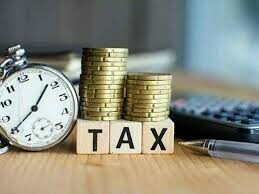Frustrated by the rising tax burden on already compliant businesses, Pakistan’s business community has called on the government to expand the tax net by bringing 4.6 million identified but unregistered industrial and commercial entities into the tax net, instead of imposing additional duties on the existing taxpayers.
The demand was made through budget proposals submitted by the Karachi Chamber of Commerce and Industry (KCCI) to the Ministry of Finance ahead of the federal budget for fiscal year 2025-26.
KCCI noted that several businesses and individuals remain outside the tax net, despite being traceable through official data such as electricity and gas connections, vehicle and property registrations, travel and banking records.
This gap results in an unfair tax regime, KCCI argues, overburdening compliant taxpayers and contributing to revenue shortfalls.
“For instance, data from the National Electric Power Regulatory Authority (Nepra) till June 2024, indicates that there are 4.6 million commercial and industrial electricity connections, while only 396,383 entities are registered for sales tax.”
Budget FY26: Sindh CM takes step aimed at finalising proposals, allocations
“This indicates the untapped potential within the system,” the business chamber highlighted in its proposals.
KCCI urged the government to utilise available datasets, such as electricity records from Wapda and KE, to identify and register these entities.
The chamber was of the view that integrating them into the tax net would enhance revenue collection, reduce reliance on punitive measures like the Further Tax, and promote equity and compliance within the tax system.
As of November 6, 2024, the Federal Board of Revenue (FBR) had received 5.215 million tax returns, showing a 76% year-on-year increase from 2.959 million filed during the same period in 2023.
However, despite this improvement in compliance, the FBR collected Rs9,309 billion during July-April FY2024-25—falling short of its Rs10,130 billion target by Rs821 billion.
The government has already revised the FBR’s annual target downward, from Rs12,913 billion to Rs12,334 billion for the ongoing fiscal year.
PCDMA submits budget proposals to FBR
Nonetheless, a shortfall exceeding Rs600 billion is projected for the full year. Provisional figures suggest that the tax collection target for the upcoming FY2025-26 will be raised to around Rs14,300 billion, making it imperative for the government to broaden the tax base.
In addition to urging a crackdown on unregistered taxpayers, KCCI recommended targeted tax relief and policy adjustments to support growth across various sectors.
Proposals include introducing reforms to revive the real economy, reinstating zero-rating for local supplies under the Export Facilitation Scheme (EFS), and abolishing taxes on shrimp broodstock to support seafood exports.
The chamber also proposed reinstating zero-rating for gold, permitting gold exports with at least 20% value addition, and removing motorcycle and auto parts from the third schedule, classifying them as intermediate goods.
Oil and gas sector tax proposals for Federal Budget 2025-26
For the tea industry, KCCI called for a review of existing policies and measures to curb revenue leakages.
According to KCCI, these recommendations, if implemented, could ease the tax burden on compliant businesses, incentivise growth in key sectors, and help the government meet its ambitious revenue targets for the upcoming fiscal year.
The federal government will present the next fiscal year’s budget on June 2.


